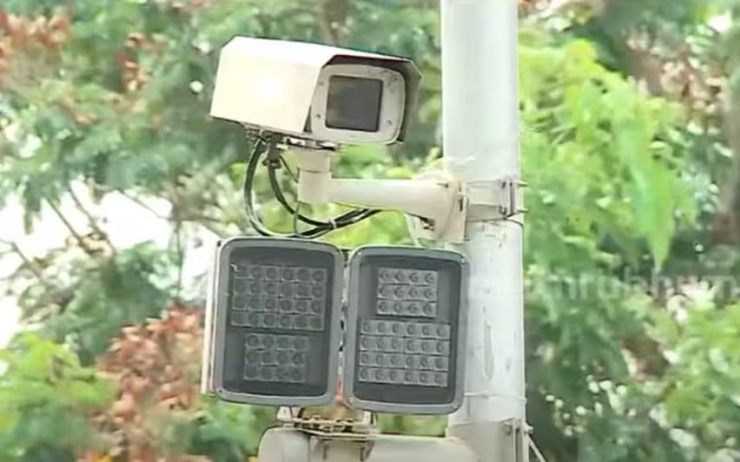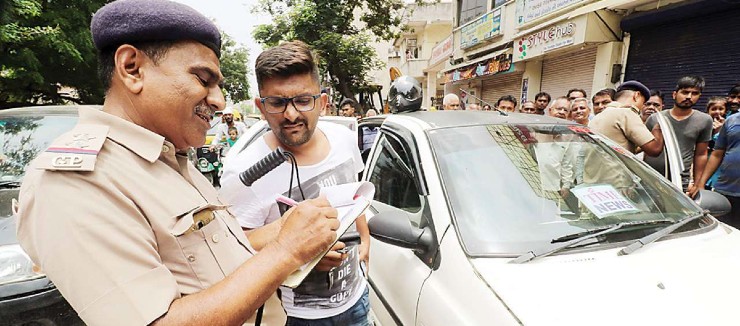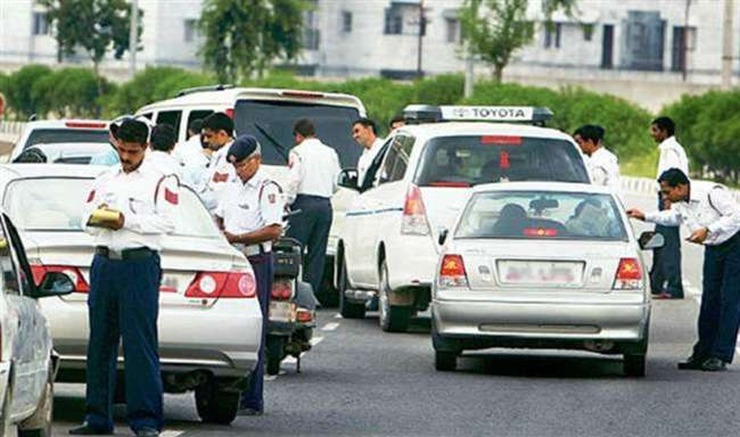Link Traffic Fines To Bank Accounts Of Offenders: Maharashtra To Union Govt


The Maharashtra government has formally requested the central government’s approval to link e-challans with motorists’ bank accounts. With this proposal, the government is aiming to automate the recovery of fines directly from the violators’ bank accounts. This move has been made by the government of Maharashtra in order to address the longstanding issue of outstanding traffic penalties. Presently, these fines add up to a total of Rs 2,429 crore.

The government of Maharashtra, back in January 2019, introduced e-challans. They were intended to streamline the process of penalizing traffic violators using electronic systems. These systems rely on handheld devices and CCTV networks. Since then, this system has identified over 7.53 million motorists.
These traffic rules offenders have been caught for various traffic offenses such as speeding, lane-cutting, and jumping signals. The problem with this streamlined system is that despite the issuance of Rs 3,768 crore in fines, the government has so far only managed to collect Rs 1,339 crore. This is around 35% of the total fine amount over the past five years.
After facing this slow recovery rate, the Maharashtra state government is now seeking permission from the central government. The state government aims to link e-challans with the bank accounts of traffic violators. This plan involves connecting bank accounts used for FASTag and motor insurance payments with outstanding e-challans.
With this linking of accounts, the government aims to have a connection that would facilitate automatic deduction of fines. This will take place whenever a motorist tops up their FASTag or pays for their vehicle insurance. According to a transport department official, this initiative would significantly enhance the efficiency of fine collection efforts.

This particular move is not an isolated case from the Maharashtra government. Back in 2023, the Supreme Court Committee on Road Safety recommended that the Odisha government implement a similar auto-debit system to improve its fine collection rates.
At the time, this advice came after observing that only 27% of e-challans issued in Odisha resulted in paid fines. Now the Maharashtra government’s proposal is taking this same example. It is hoping that this will lead to better compliance and more efficient recovery of dues.

Many netizens and people have asked whether this is fair for the general public or not. While the initiative aims to streamline fine recovery, there is one major issue: the potential impact on motorists’ ability to contest fines.
Currently, drivers have the right to challenge e-challans in court. With this new rule’s implementation, the process could be hampered by automatic deductions. Also, the accuracy of AI-driven CCTV systems is another point of concern.

On many occasions, these AI-driven systems have issued wrong challans, leading to wrongful deductions from bank accounts. Privacy and data security are also significant issues. Linking bank accounts to e-challans involves sensitive personal information.
This raises questions about how this data will be handled and protected. Recent cybersecurity incidents, such as the data breach in Telangana’s Hawk Eye app, have made these data leaks a more important issue than before. If the government manages to get permission for this system, there will be a need for strict security measures to protect motorists’ information.